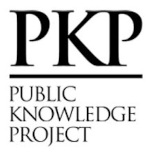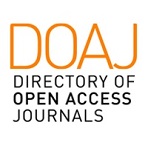Digital games, automation and algorithms
Games for apparatus or for humans?
DOI:
https://doi.org/10.29147/2526-1789.DAT.2017v2i1p90-103Keywords:
Videogames, Post-history, Automation, AlgorithmsAbstract
This paper explores a new kind of algorithm based creativity, which has
been established and can be already seen in a new gender of video games. In order to do so, the concepts of post-history and automation are employed, as they are key for the comprehension of our algorithmic age. Perhaps, videogames are the creative field where methods of automation are most explicit: Environments and characters controlled by artificial intelligence systems have been part of this universe for a while. Video games, as cultural products, reflect actual trends, vital social changes and contemporary questions. Though, it is not just a coincidence the fact that autonomous
games begin to arise in the digital game realm. What needs to be discussed,
however, is for whom and how these games are addressed and how they will impact the human freedom.
Downloads
References
Aarseth, E. 2004. “Genre Trouble: Narrativism and the Art of Simulation”. Em First Person. New media as story, performance, and game, editado por Noah Wardrip-Fruin e Pat Harrigan, 45-49. Cambridge: The MIT Press.
Aristóteles. 2005. A poética clássica. São Paulo: Editora Cultrix.
Bell, R. M. 1972. Changing technology and manpower requirements in the engineering industyy. Londres: Sussex University Press.
Boden, M.A. 1987. Artificial inteligence and natural man. London: MIT Press.
Cormen, T. H; Leiserson, C. E.; Rivest, R. L.; Stein, C. 2009. Introduction to algorithms. Londres: MIT Press.
Einzig, P. 1957. The economic consequences of automation. Londres: Secker & Warburg.
Flusser, V. 2010. A escrita. Há futuro para a escrita? São Paulo: Annablume.
Flusser, V. 1987. Carta a Milton Vargas, disponível no arquivo Flusser.
Flusser, V. 2002a. Do funcionário. In: Da religiosidade. A literatura e o senso de realidade. São Paulo: Escrituras.
Flusser, V. 2002b. Em louvor do espanto. In: Da religiosidade. A literatura e o senso de realidade. São Paulo: Escrituras.
Flusser, V. 2002c. Filosofia da caixa preta: Ensaios para uma future filosofia da fotografia. Rio de Janeiro: Relume Dumará.
Flusser, V. 2007. “Forma e material”. Em O mundo codificado. Por uma filosofia do design e da comunicação, editado por Rafael Cardoso, 22-32. São Paulo: Cosac Naify.
Flusser, V. 2008. O universo das imagens técnicas: Elogio da superficialidade. São Paulo: Annablume.
Gombrich, E. 2006. The story of art. London: Phaidon.
Groover, M. P. 2016. Automation, production systems, and computer-integrated manufacturing. Londres: Pearson.
Harari, Y. N. (2015). Homo Deus. A brief history of tomorrow. Londres: Harvill Secker.
Kaplinsky, R. 1984. Automation: The technology and society. Londres: Longman Group.
Manovich, L. 2001. The language of new media. Cambridge: The MIT Press.
Murray, J. 2003. Hamlet no holodeck: O futuro da narrativa no ciberespaço. São Paulo: Editora Unesp.
Parkin, S. 2015. The rise of games you (mostly) don’t play. In: Gamasutra. Available at: http://www.gamasutra.com/view/news/237926/
Prisecaru, P. 2016. Challenges of the fourth industrial revolution. In: Knowledge Horizons. Economics, 8(1), 57-62.
Ramtin, R. 1991. Capitalism and automation. Revolution in technology and capitalista breakdown. Londres: Pluto Press.
Reale, G. 2005. Metafísica. Ensaio introdutório I. São Paulo: Edições Loyola.
Thomas, H. A. 1969. Automation for management. Londres: Gower.
Wirth, N. 1985. Algorithms and data structures. New Jersey: Prentice Hall.


























